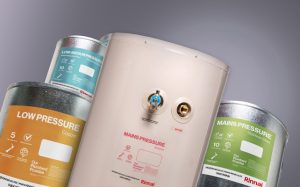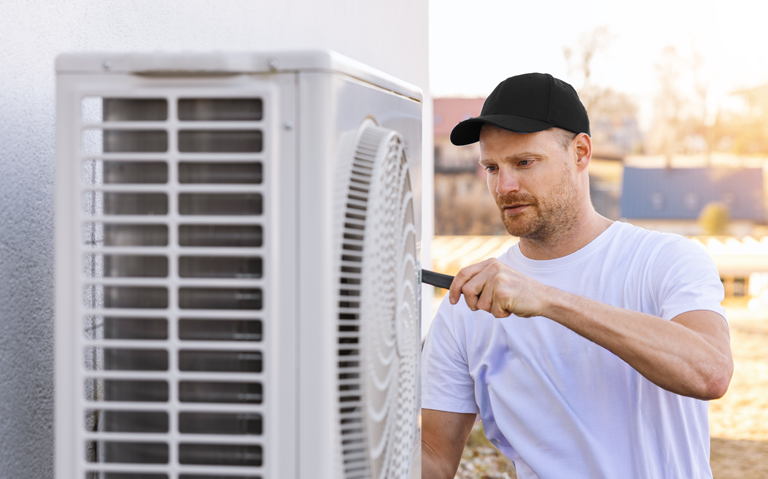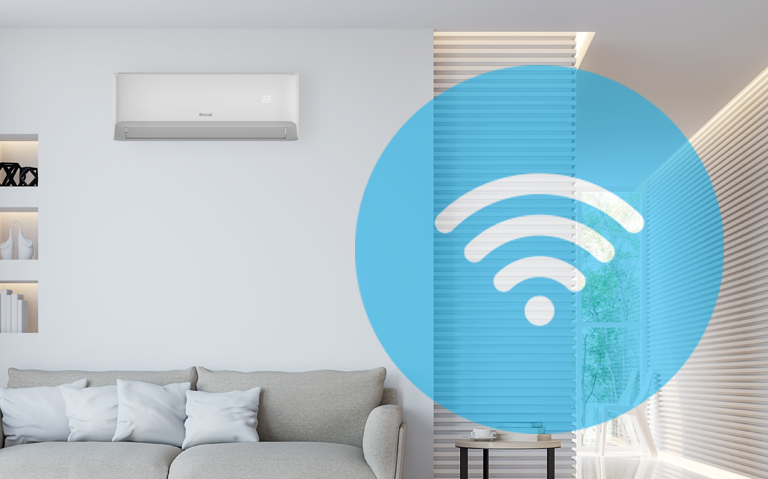How Air Conditioning Impacts Humidity
The goal of your air conditioning system throughout the summer is to keep your home cool and comfortable—especially when you’re trying to get a good night’s sleep. But temperature is just one part of the comfort equation—humidity is the other.
Why humidity control is essential in your home
Excessive humidity in homes creates an ideal environment for mould, mildew, and dust mites to thrive. These allergens can severely impact indoor air quality, triggering respiratory issues such as asthma, allergies, and even chronic sinus infections. High moisture levels can also cause walls, ceilings, and furniture to deteriorate over time, promoting the growth of mould and mildew. Dehumidification plays a crucial role in maintaining a healthier home by reducing moisture levels, improving air quality, and protecting you and your family from these health hazards.
Does a Heat Pump Dehumidify?
Yes, a heat pump can also help with dehumidification. While its primary function is heating and cooling, a heat pump naturally reduces humidity as it circulates air through the evaporator coil. As warm air passes over the cold coil, moisture in the air condenses and drains away, effectively lowering the humidity levels inside your home.
In regions like New Zealand, where high humidity can be an issue during warmer months, a heat pump can be an excellent all-season solution. It not only keeps your home cool in the summer and warm in the winter but also maintains optimal humidity levels year-round, contributing to a healthier and more comfortable living environment.
Learn more about reverse-cycle air conditioners.
Advantages of using a heat pump or air conditioner also as a dehumidifier
- Enhanced Comfort: By combining cooling with dehumidification, air conditioners provide a two-in-one solution that helps create a more comfortable home environment. In fact, the world’s very first air conditioner was invented with dehumidifying in mind—cooling was just an added benefit!
- Energy Efficiency: Using an air conditioner or heat pump as a dehumidifier is an energy-efficient option. Rather than investing in a separate dehumidifier, these systems can handle both tasks simultaneously, reducing the need for multiple appliances.
Many modern units, like the Rinnai Pro Series High-Wall Heat Pump and Ducted Heat Pump Systems, feature a dedicated dehumidifier mode. This allows you to manage humidity levels without needing full cooling or heating, consuming less energy in the process. By maintaining optimal humidity, your air conditioning system works more efficiently, as it doesn’t need to combat excess moisture on top of temperature control.
- Improved Air Quality: Air conditioners and heat pumps equipped with dehumidifying capabilities do more than just cool or heat—they actively improve air quality. By reducing moisture in the air, these systems limit the growth of mould, mildew, and other allergens that thrive in damp environments. This creates a healthier indoor atmosphere, particularly for those prone to allergies or respiratory issues. With lower humidity levels, your home becomes less hospitable to dust mites, while also reducing the risk of condensation-related damage to walls and furniture.

The Importance of the Right-Fit Cooling Solution for Your Home
When it comes to air conditioning, bigger isn’t always better. It’s a common misconception that a larger system will be more effective. While a bigger car or TV might sound appealing, in air conditioning, the key to comfort lies in finding the right fit for your home’s specific needs.
An oversized system can waste power and, counterintuitively, increase the humidity in your space. This happens because larger systems often run shorter cycles, which don’t allow enough time to properly dehumidify the air.
Conversely, an underpowered system will struggle to keep your home cool, running longer and harder to achieve the desired temperature. This not only increases energy consumption (and your electricity bill!) but can also cause accelerated wear and tear, leading to a shorter system lifespan.
How to Find the ‘Just Right’ Cooling Solution for Your Space
Choosing the right air conditioning system involves more than just picking a brand or size. Many factors need to be considered, such as how many rooms you want to cool, the volume of those rooms, insulation quality, and even the placement of windows and sunlight exposure.
Rinnai’s accredited dealers and installation network across New Zealand can visit your home and help design the perfect solution for your family’s needs. The design process considers how you and your family use the space. For instance, did you know the average person radiates 100-120 watts of heat while at rest? Small details like this can make a big difference when choosing the right system.
When the weather turns, turn to Rinnai, your total home living experts
Whether you’re looking to cool down this summer, or maintain a comfortable, dehumidified space year-round, Rinnai has a solution that’s tailored to your home and lifestyle.





















